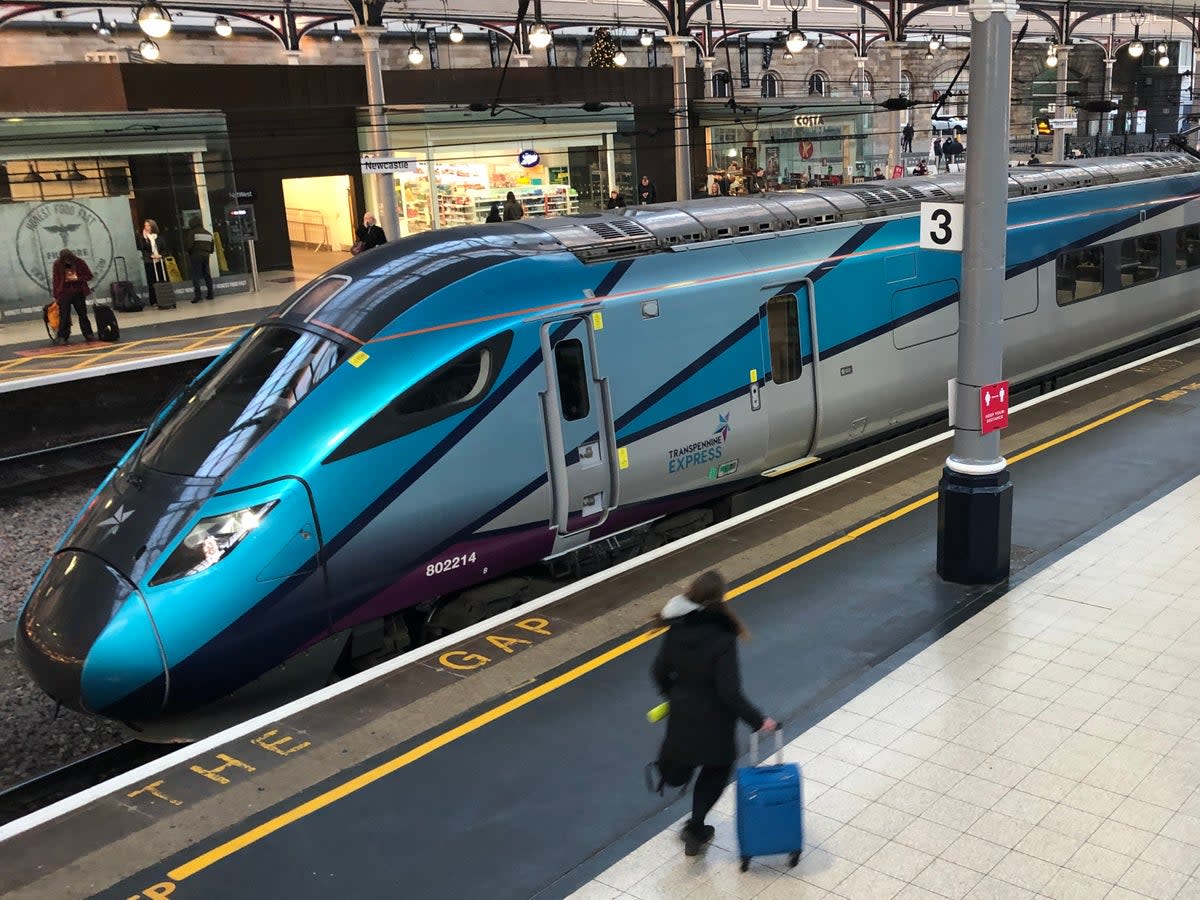Rail strike impact heightened by ‘ongoing crew availability issues’

As train drivers working for nine rail operators began their latest one-day strike, travellers between northwest England and southern Scotland have been told overnight that no trains are available.
TransPennine Express, whose staff are not involved in the stoppages, has cancelled all trains between Glasgow and Manchester on Saturday due to “ongoing crew availability issues”. The firm is “advising to only travel if essential between Manchester and Glasgow”.
With Avanti West Coast cancelling all its trains on the main line between northwest England and southern Scotland, there is now no easy way to travel by rail between the two regions.
One disappointed passenger, Keith Graham, said: “I have been organising a reunion of friends today in the north of England, which had been postponed several times due to the pandemic.
“With no Avanti services running either between Glasgow and Manchester they have effectively cancelled our long-planned reunion, with lots of costs sunk on hotels and so on.
“How is it possible for an organisation whose sole purpose is to run trains to be in such a chaotic state?”
TransPennine Express said: “Due to the ongoing impact of higher-than-normal sickness levels and ongoing industrial relations issues, it is necessary to make amendments to some services in advance to ensure the majority of the timetable operates efficiently.”
Some links on the east coast main line from Edinburgh to Newcastle and York have also been axed, causing problems for passengers who were hoping to avoid the effects of the train drivers’ strike.
Of the nine train operators whose drivers belonging to Aslef have walked out, five are running no trains on Saturday: Avanti West Coast, Southeastern, West Midlands Trains, London Overground and CrossCountry.
Greater Anglia, Hull Trains, LNER and Great Western Railway are running some services, but at only a fraction of their normal extent and frequency.
Disruption is expected to continue into Sunday.
On Thursday 18 and Friday 20 August, around 40,000 members of the RMT union will walk out in the latest national rail strikes, bringing many services across the UK to a halt.
Even on train operators that are not involved in pay disputes, such as Transport for Wales and ScotRail, there will be severe disruption due to Network Rail signallers walking out. The effects will continue into Friday and Sunday.
Meanwhile, Avanti West Coast is starting an emergency timetable from Sunday. Rail services linking London Euston with the West Midlands, northwest England and southern Scotland will be sharply cut back.
The biggest reductions are on services linking Birmingham and Manchester with London – they are reduced by two thirds, with one train each hour rather than three.
There will also be cuts to Chester and North Wales, and from London via the West Midlands to Edinburgh.
Avanti West Coast typically relies on 250 drivers a day working on their rest days, covering around 400 passenger trains.
Sources say that, the number of drivers working rest days dropped dramatically overnight, by almost 90 per cent.
The transport secretary, Grant Shapps, wrote in a tweet: “Unions now stopping drivers volunteering – causing misery for public & staff who won’t get paid.”
Avanti West Coast said it wanted to “ensure a reliable service is delivered so our customers can travel with greater certainty” – though it recognised that the emergency timetable would cause “enormous frustration and inconvenience”.
But Mick Whelan, general secretary of Aslef, said there was an overwhelming mandate for industrial action on Avanti West Coast.
He told The Independent: “When you lose goodwill and we go on strike, people not then coming in to work overtime is the first thing that normally happens.”


